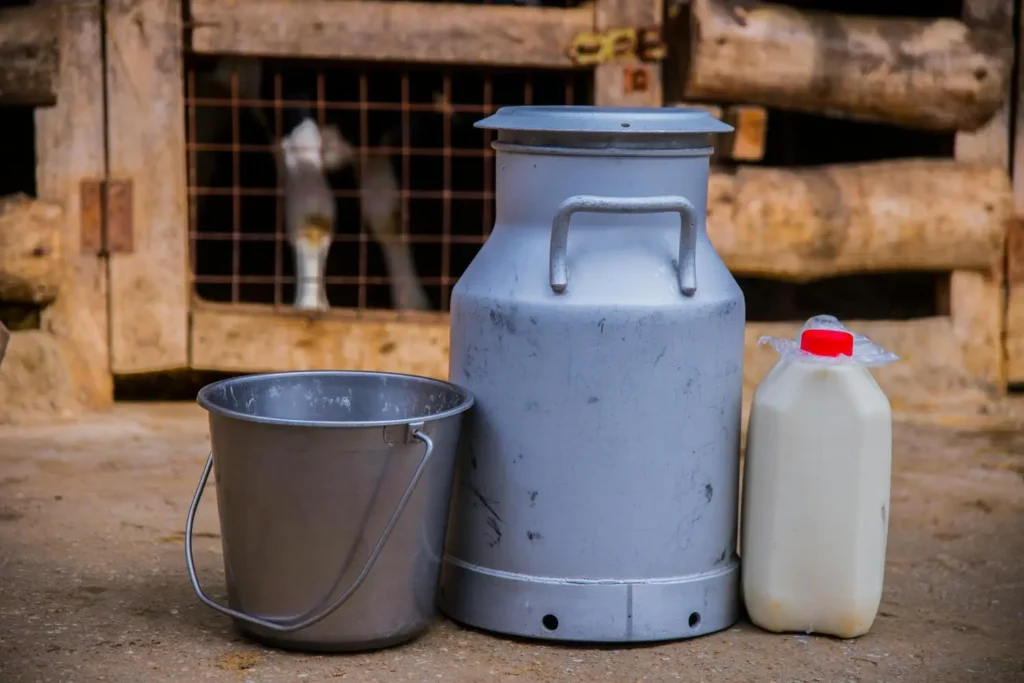Is Raw Milk Healthy and Safe to Drink?
In recent years, raw milk has gained popularity, particularly among people opting for a diet that emphasizes whole foods and natural ingredients. Many proponents argue that raw milk is the most nutrient-dense version of milk because it hasn’t undergone the pasteurization process that some believe strips it of vital nutrients. However, while raw milk does come with its advocates, it’s essential to take a closer look at the health and safety aspects of consuming it, especially from a nutritional standpoint.
As a nutritionist, I urge all my clients to approach raw milk with caution. While it may offer some benefits, there are also significant risks that should not be overlooked. Let’s break down what raw milk is, its potential health benefits, and the safety concerns surrounding it.
What is Raw Milk?
Raw milk is milk that comes straight from the cow, goat, or sheep without any heat treatment, such as pasteurization. Pasteurization is a process that involves heating milk to a specific temperature for a set period of time to kill harmful bacteria and pathogens that could pose a risk to human health. This process is the reason why milk available in most grocery stores is pasteurized, making it safer to consume.
Raw milk enthusiasts argue that pasteurization destroys beneficial bacteria, enzymes, and certain nutrients, including vitamin C and B vitamins, which are thought to aid digestion and overall health. For this reason, they believe that raw milk is a more natural and wholesome option.
Potential Benefits of Raw Milk
Supporters of raw milk suggest several potential benefits:
- Better Nutrient Retention: Raw milk contains a full spectrum of nutrients, including calcium, vitamins A and D, and essential fats. Some believe that because raw milk isn’t pasteurized, these nutrients remain intact, leading to a more nutritious beverage.
- Probiotic Content: Raw milk contains natural probiotics (beneficial bacteria) that some claim can improve gut health and boost the immune system. These probiotics are lost during pasteurization, which might be why some raw milk drinkers feel that it aids their digestion and overall wellness.
- Improved Taste: Many people who drink raw milk say it tastes fresher and creamier than pasteurized milk. It’s also reported to have a sweeter, richer flavor due to the presence of natural sugars, such as lactose, which are not broken down during pasteurization.
- Allergy Relief: Some individuals claim that they experience fewer allergic reactions when drinking raw milk, particularly those with a sensitivity to pasteurized milk. This is largely anecdotal, as the enzymes and bacteria present in raw milk may help with digestion.
The Risks of Drinking Raw Milk
While there are some benefits to raw milk, it’s crucial to highlight the significant risks associated with drinking it, particularly from an infectious disease perspective. Here are some of the most important concerns:
- Bacterial Contamination: Raw milk is not pasteurized, meaning it can harbor harmful bacteria such as Salmonella, E. coli, and Listeria, all of which can cause serious illness. In fact, the Centers for Disease Control and Prevention (CDC) warns that consuming raw milk can lead to foodborne illnesses, which may cause symptoms such as nausea, vomiting, diarrhea, and in extreme cases, life-threatening complications.
- Vulnerable Populations: Certain groups of people are at a much higher risk of illness from raw milk, including young children, the elderly, pregnant women, and those with weakened immune systems. These populations are more susceptible to foodborne pathogens, and drinking raw milk could result in severe consequences.
- Unpredictable Quality: Unlike pasteurized milk, which is subject to strict safety regulations and quality control measures, raw milk can vary greatly depending on the source. Milk from an unregulated or non-certified farm may not be stored, handled, or tested properly, increasing the risk of contamination. Even if the milk comes from a well-maintained farm, there’s still no guarantee that the milk is free from harmful bacteria.
- Lack of Research: While there are claims that raw milk has potential health benefits, the scientific research to support these claims is limited. Much of the available evidence is anecdotal, and there’s insufficient data to confirm whether raw milk provides the purported advantages over pasteurized milk. Furthermore, there’s no definitive research showing that raw milk is safer or more beneficial for overall health than pasteurized milk.
Should You Drink Raw Milk?
Ultimately, whether or not to drink raw milk is a personal decision, but it’s important to approach it with caution. While it may offer some potential benefits, the risks are substantial. The possibility of bacterial contamination and the higher risk for vulnerable populations are key factors to consider before deciding to consume raw milk.
If you’re considering adding raw milk to your diet, it’s crucial to:
- Source the milk carefully: If you choose to drink raw milk, ensure it’s from a reputable, certified farm that follows proper hygiene and safety protocols.
- Consult with a healthcare provider: If you have any underlying health conditions or if you belong to a high-risk group, it’s essential to discuss your decision with a healthcare professional first.
- Weigh the risks and benefits: While raw milk may seem like a more natural option, pasteurized milk is still the safest choice for most people and provides most of the same nutritional benefits without the health risks.
Conclusion
Raw milk may seem appealing as part of a whole-foods diet, with its advocates touting potential health benefits. However, as a nutritionist, I emphasize caution when it comes to this unpasteurized beverage. The risks associated with harmful bacteria and the lack of scientific evidence supporting its health benefits make raw milk a controversial choice. If you’re looking to enhance your milk consumption for better health, pasteurized milk remains the safer, more reliable option. Always prioritize safety, particularly if you are in a vulnerable group, and consult with a healthcare provider before making any dietary changes.



